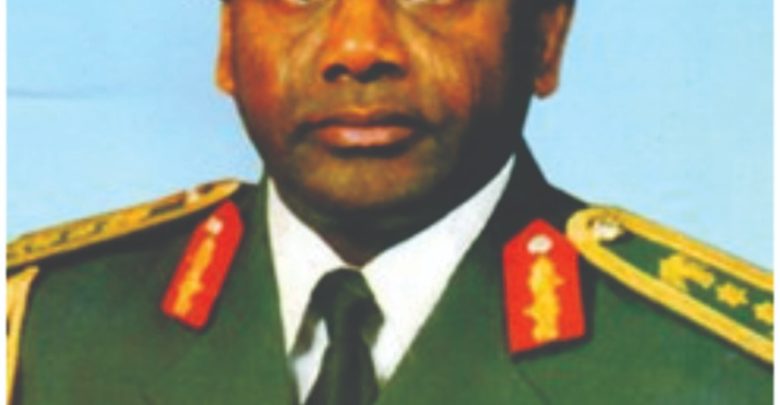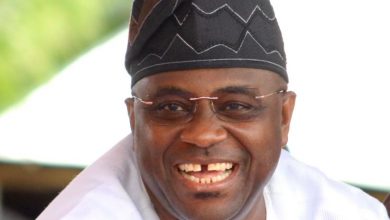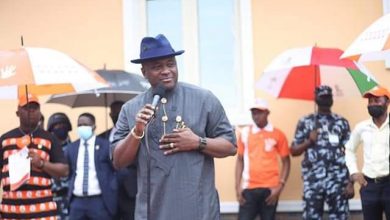
Although proving beyond doubt to common Nigerians what use the trillions previously recovered have been put to by successive Nigerian governments has always been a top-level matter of politics in official quarters, the latest information that another heavy tranche of the Abacha loot amounting to S318, 460, 329 million dollars is set for return to the Nigerian government by the United States of America is heart-warming.
A statement by the spokesperson for the US State Department, Morgan Ortagus, Tuesday, February 4, 2020, confirmed the details. But the release with an imperative on how the money is to be spent: “The funds will be used by the Nigerian Independent Sovereign Authority for three infrastructure projects in strategic economic zones across Nigeria”, it was stated.
In compliance, even if it were on the surface, the Nigerian government has corroborated that the recovered loot will be expended on three projects: repairing Lagos-Ibadan Expressway, Abuja-Kano Road, and completing the Second Niger Bridge. Attorney General of the Federation and Minister of Justice, Mr. Abulakar Malami, on signing the tripartite agreement between the US and the federal government and Jersey Tuesday, February 4, 2020 in Washington DC, projected that “the three projects will help boost economic growth and development in the country”.
However, the salutary notice of refund also came with an apprehensive proviso that mocks Nigeria’s dwindling integrity in the global space, a subtle indictment of her chronic and most celebrated character in high and low places – Endemic Corruption. The US government, cautiously expressing its reservations, categorically stated that Nigeria will be made to replace the money if stolen. “It requires Nigeria to repay any funds lost as a result of any new corruption or fraud to the account established to hold the returned assets”.
A brief history of the loot shows that the money was laundered by Abacha through some conduit pipes in the United States of America before being transferred to the bank in Jersey, United States, one of the most popular -and maybe notorious – financial havens for foreign looters. According to Jersey Civil Asset Recovery Fund, the sum was nevertheless recovered from Jersy bank account belonging to Shell Company, Doraville, in June 2019.
It had taken six years to reach this point, counting from the US court ruling in 2014 and subsequent freezing of Doraville bank account by Jersey’s Royal Court that same year. The final agreement to return the money to Nigeria is in keeping with the principles of Global Forum on Asset Recovery championed by the US and United Kingdom, to which Nigeria is a signatory, especially necessitated by the damage done the country by Abacha and his ilk.
Principal content of the agreement is that the money will start dropping in federal government’s account within 72 days. As part of the charges or shared benefits, Jersey (the bank) and the United States’ Government will retain S5m dollars each. Jersey is expected to pay the US government on or before March 6, 2020 and then US will start shipping the tons of dollars to the Nigerian government within 45 days. According to the US Department of Justice, also expected are S30milion (23million pounds) from Britain and S144 (111 pounds) from France.
Ortagus further unveiled one more applicable terms and conditions: “The projects on which the funds will be expended will be administered by the Nigeria Sovereign Investment Authority and independently audited. To ensure that the funds are used responsibly and for the good of the nation, the agreement includes monitoring the implementation of these projects as well as external oversight…to report regularly on progress”.
Historical and socioeconomic statistics have indisputably confirmed that over 95 percent of Nigeria’s wealth since the discovery and beginning of oil exploitation in late 1950’s comes from the creeks and oil wells of the Niger Delta. Common logic of syllogism automatically implies that the trillions the late Head of State, Gen. Sani Abacha, stashed in foreign banks for the six hard years he held sway could hardly have come from elsewhere.
In retrospect, right from the days of former President Olusegun Obasanjo, down across that of the two presidents between him, to the emergence of the incumbent in 2015, there have always been efforts specially targeted at tracing and recovering the looted funds in foreign banks. But every administration has been accused of displaced priority and mismanagement of the sleaze.
Besides, there is the prevalent criticism that the public is only privileged to hear or know of the recovered loots in the pages of daring newspapers but would never hear of how specifically such monies were spent and on what. Otherwise, there would have been free accessibility to such information and landmark projects to justify government’s prudence, to reduce curiosity and suspicion.
Jonathan administration had argued that part of the funds from the Abacha loot was invested in fuel subsidy duirng his days in Aso Rock. The present administration of President Muhammadu Buhari contends that it already has used part of the loot in several Social Investment Programmes like N-Power, etc, as safety net targeted at youth and the unemployed.
To the contrary, there are observers who have said that the funds were part of the post-election spree in 2019 spearheaded by the Vice President referred to as “tradermoni”, which the opposition euphemistically described as “vote-buying mechanism”.
By and large, the question is: What is the criterion of selection of beneficiaries for the fund? Who should take the lion share in the formula of sharing? What feedback mechanism should be adopted to enthrone transparency and quell public suspicion? For what reasons would the Niger Delta be excluded from the rationale of allocation of such funds?
Here then is the connection: Irrespective of the quantum of monies involved and where they were hoarded at home or overseas, the conditions surrounding the Abacha loot are almost similar to those of former Minister of Petroleum, Allison Madueke in terms of the main source of the loot – monies from oil and related vaults in the Niger Delta.
Ironically, the Niger Delta region provides the richest, fastest, most certain and abused coffers of personal aggrandisement for privileged Nigerians from any part of the country. You can do your personal analysis to further convince yourself. By the last count, Abachs’s loot in the United States stands at S4billion dollars, out of which only 1billion have so been recovered. An authority in the Swiss Bank, Roberto Balzaretti, told BBC in 2017 that in the last 10 years, Switzerland may have returned over S1billion dollars, including the S300m dollars in 2018.
So if such funds were recovered, who by fairness should take the lion share? While the federal government is commended for choosing to spend the latest Abacha loot in the North, East and West, it must be stated that roads like East West Road and Calabar-Itu Road also deserve attention, a region that is the unarguably the bread winner to the country.
The Onitsha Bridge billed for possible completion in 2022 was built in 1965, about 10 years earlier than the Calabar-Itu Road in 1976; the 127.6km Lagos-Ibadan Expressway was constructed in 1978; and the 375km Abuja-Kano Road attracted 155.7billion in the 2017 budget and has always been attracting form previous governments.
It may be of interest that the North East Development Commission (NEDC) was allocated 10bilion in the 2020 budget, but the bulk of that money is expected to come from the Niger Delta, like it is to other sections of the country. It was perhaps for that reason that advocates had advised those agitating for the creation of regional development commissions not to think of depending on the Niger Delta for survival.
The summary is that the cumulative and subsisting iniquities of NDDC were far too weak an excuse for the deliberate error of its seclusion from the Abacha loot returns. Again, there is no justification whatsoever to exclude the Calabar-Itu Road and the East West Road from beneficiaries of the loot, the roads being the most important, yes the most important, to the country at the moment, except someone wishes to pretend otherwise.

Maybe that is the perspective Chief Edwin Clark, leader of the Pan Niger Delta Elders Forum (PANDEF), is looking at the matter. Transmitting his displeasure in an explosive letter from London, the former Federal Commissioner of Communication excoriated President Buhari for having the Niger Delta region neither in the 2020 Budget nor the Abacha loot. “This, indeed, is a demonstration of the Federal Government’s repeated and deliberate neglect of the Niger Delta region, even though the Abacha loot came substantially from the region”.




